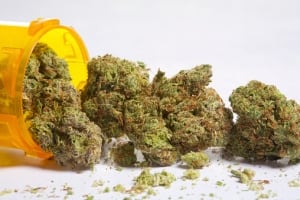The US Supreme Court plans to update the rules for prosecuting individuals accused of drunk driving by reviewing a trio of cases dealing with “Refusal” statutes.
In North Dakota, a state law makes it a crime for a motorist to refuse to take “any” type of test — blood, alcohol or urine — used to prosecute driving under the influence (DUI) cases. The court will decide the constitutionality of this provision in the context of two cases, Birchfield v. North Dakota and Beylund v. North Dakota, each of which presents the same question from a slightly different angle.
In Beylund, motorist Steve Michael Beylund agreed to take a blood test after being threatened with criminal penalties if he refused. In Birchfield, motorist Danny Birchfield refused to take a breath test. The highest court in North Dakota reviewed the existing legal precedent and found no reason to overturn the refusal law.
The drunk-driving cases provide the Court with something of a sequel to its ruling in 2013 in Missouri v. McNeely, which left the clear impression that, if police have enough time, they should get a warrant before taking a test of a suspected drunk driver. The Court ruled that the natural dissipation of alcohol in the bloodstream does not always amount to an emergency situation that permits a DUI test without a warrant.
The North Dakota justices wrote, “Birchfield has not drawn our attention to any appellate court decisions striking down criminal refusal statutes, and we have found that since the U.S. Supreme Court’s ruling in McNeely, criminal refusal statutes have continued to withstand Fourth Amendment challenges, particularly in Minnesota.”
Last month, however, in Hawaii v. Won, the Hawaii Supreme Court cited the US Supreme Court’s reasoning in finding refusal statutes as unconstitutional. In light of McNeely, Hawaii’s justices decided the US Supreme Court had clearly ordered law enforcement to obtain a warrant before compelling a “search” of a person’s blood, as the Fourth Amendment requires.
The US Supreme Court will tackle the different rulings from these States in the context of a third case, Bernard v. Minnesota, which deals with that state’s law treating a breath test as a “search incident to arrest.” Here, William Robert Bernard Jr used his truck to pull a boat out of the water. Officers believed he was DUI. After Bernard was arrested, he refused a breath test.
At any rate, the U.S. Supreme Court will soon decide whether criminalized refusal statutes represent a DUI exception to the Constitution.
Please contact my office if you, a friend or family member are charged with a crime. Hiring an effective and competent defense attorney is the first and best step toward justice.







